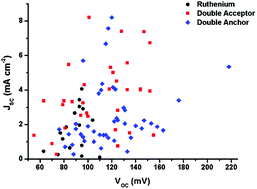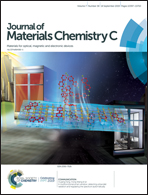Developing photocathode materials for p-type dye-sensitized solar cells
Abstract
Dye-sensitized solar cells are photoelectrochemical devices, which are of great interest due to their ease of fabrication and attractive design. This review details the progress made over the last 20 years into the development of more efficient p-type DSCs with the goal of combining both p and the more widely studied n-type (TiO2)-based photoelectrodes in tandem-DSCs. Such tandem architectures offer an opportunity to collect more light, more efficiently by overcoming the thermodynamic limits of single-junction devices. The main components of the p-DSCs, such as the variety of different sensitizers, p-type semiconductors and electrolytes are introduced and their typical performance in devices are compared. The kinetics of light-induced charge transfer at the interfaces between these materials are also discussed and suggestions are made as to which factors could be a priority for future research to increase the performance of p-type DSC to match state-of-the-art TiO2-based devices, which is necessary for a step change in the conversion efficiency.

- This article is part of the themed collection: Recent Review Articles


 Please wait while we load your content...
Please wait while we load your content...